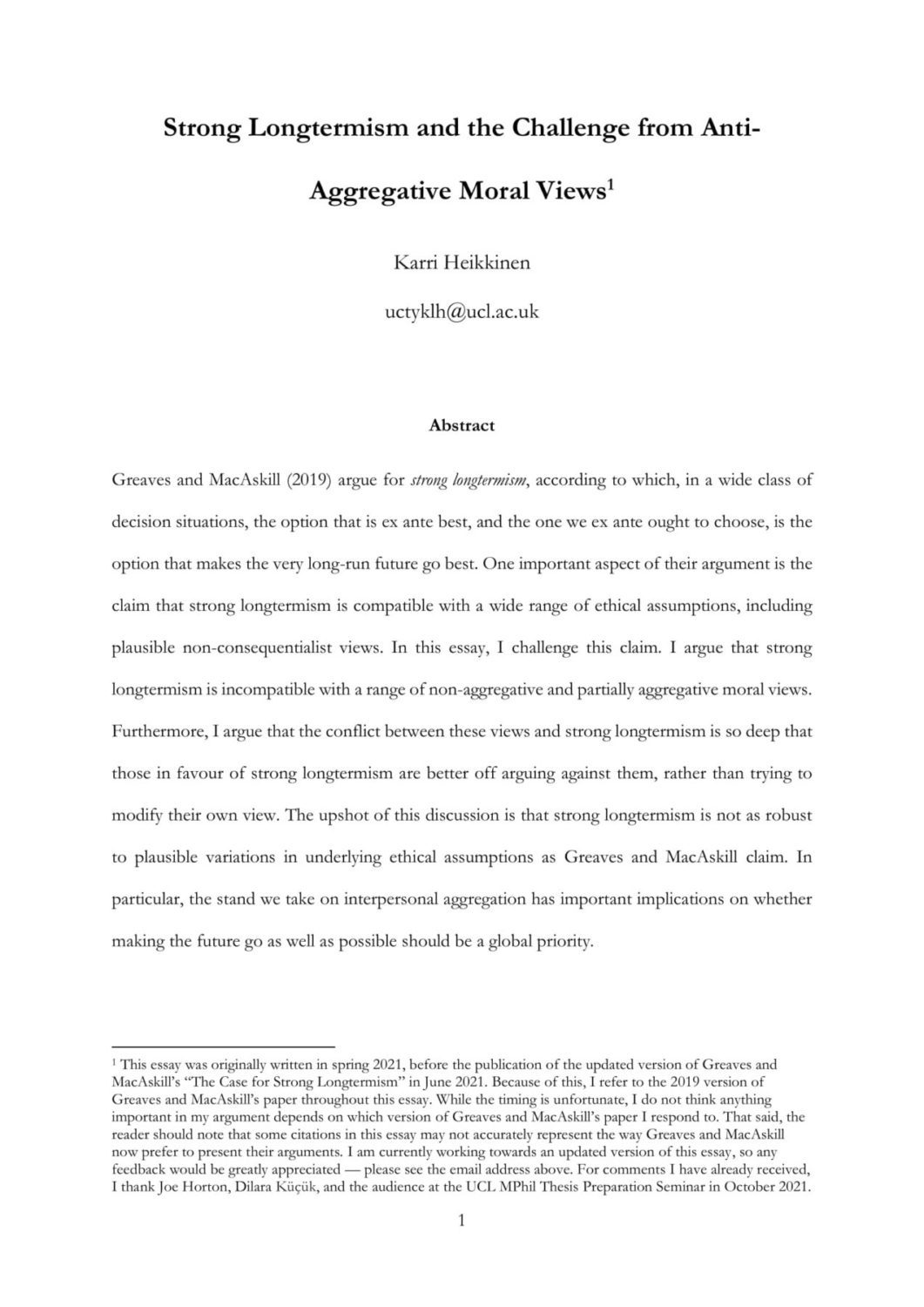Strong longtermism and the challenge from anti-aggregative moral views
Karri Heikkinen (University College London)
GPI Working Paper No. 5 - 2022
Greaves and MacAskill (2019) argue for strong longtermism, according to which, in a wide class of decision situations, the option that is ex ante best, and the one we ex ante ought to choose, is the option that makes the very long-run future go best. One important aspect of their argument is the claim that strong longtermism is compatible with a wide range of ethical assumptions, including plausible non-consequentialist views. In this essay, I challenge this claim. I argue that strong longtermism is incompatible with a range of non-aggregative and partially aggregative moral views. Furthermore, I argue that the conflict between these views and strong longtermism is so deep that those in favour of strong longtermism are better off arguing against them, rather than trying to modify their own view. The upshot of this discussion is that strong longtermism is not as robust to plausible variations in underlying ethical assumptions as Greaves and MacAskill claim. In particular, the stand we take on interpersonal aggregation has important implications on whether making the future go as well as possible should be a global priority.
Other working papers
Misjudgment Exacerbates Collective Action Problems – Joshua Lewis (New York University) et al.
In collective action problems, suboptimal collective outcomes arise from each individual optimizing their own wellbeing. Past work assumes individuals do this because they care more about themselves than others. Yet, other factors could also contribute. We examine the role of empirical beliefs. Our results suggest people underestimate individual impact on collective problems. When collective action seems worthwhile, individual action often does not, even if the expected ratio of costs to benefits is the same. …
Simulation expectation – Teruji Thomas (Global Priorities Institute, University of Oxford)
I present a new argument for the claim that I’m much more likely to be a person living in a computer simulation than a person living in the ground-level of reality. I consider whether this argument can be blocked by an externalist view of what my evidence supports, and I urge caution against the easy assumption that actually finding lots of simulations would increase the odds that I myself am in one.
- « Previous
- 1
- …
- 35
- 36
- 37

